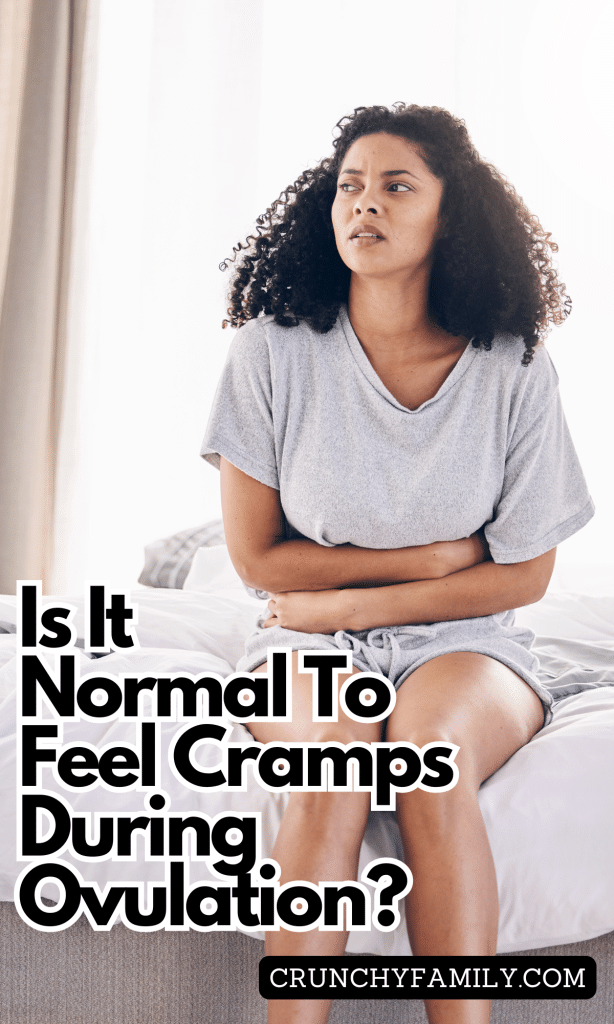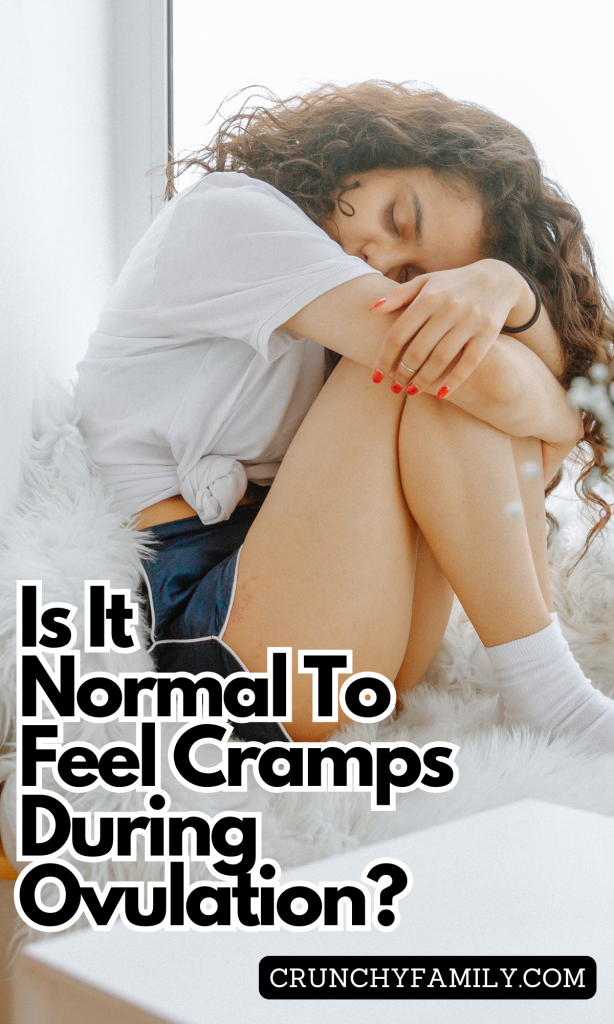As someone who is now trying to conceive (TTC), I’ve always been fascinated by the incredible process of reproduction and how our cycles work. Tracking ovulation naturally and understanding my body’s rhythms has become a significant part of my life.
One thing I’ve noticed is that some months, I experience ovulation cramps, which are often quite localized on the right or left side of my abdomen. Let’s explore this topic together and see if experiencing cramps during ovulation is something normal.

First things first, what exactly are ovulation cramps? Ovulation cramps, also known as mittelschmerz (which is German for “middle pain”), occur around the middle of your menstrual cycle. This is typically about two weeks before your next menstrual period.
The cramps happen when an ovarian follicle ruptures to release a mature egg from the ovary, which is then picked up by the fallopian tube.
For many women, ovulation pain is a mild twinge or dull ache on one side of the lower abdomen. This pain can vary in intensity and may sometimes be accompanied by a bit of vaginal discharge.
The exact cause of ovulation pain is not entirely understood, but it is generally linked to the stretching of the ovarian surface, the release of the egg, and sometimes the leakage of follicular fluid which can irritate the abdominal lining.
Symptoms and Duration

Ovulation cramps can feel like a sharp pain, a dull ache, or a mild twinge on the side of your lower abdomen. The side of the body where you feel the cramps can change from month to month, depending on which ovary releases the egg.
This mid-cycle pain can last anywhere from a few minutes to a couple of days. Some women might experience lower back pain as well.
While many women experience ovulation cramps, it’s important to note that the intensity and duration of pain can vary. Some months, the pain might be barely noticeable, while other months, it might feel more intense.
This variation is completely normal and can depend on numerous factors, including hormone levels and individual pain thresholds.
When to Seek Medical Advice

In most cases, ovulation cramps are a normal part of the menstrual cycle. However, severe ovulation pain can sometimes indicate other health conditions that might require medical attention. Here are some potential underlying causes of severe ovulation pain:
- Ovarian Cysts: These fluid-filled sacs on the ovary can cause significant discomfort, especially if they rupture.
- Pelvic Inflammatory Disease (PID): An infection of the reproductive organs that can cause chronic pelvic pain.
- Endometriosis: A condition where tissue similar to the uterine lining grows outside the uterus, causing severe pain.
- Ectopic Pregnancy: A pregnancy where the fertilized egg attaches outside the uterus, which is a medical emergency.
- Sexually Transmitted Infections (STIs): Certain STIs can cause pelvic pain and other symptoms.
If you experience severe abdominal pain, heavy bleeding, or any other unusual symptoms during the time of ovulation, it’s a good idea to consult a healthcare provider.
A pelvic exam, blood tests, or imaging studies might be necessary to determine the exact cause of your pain.
Managing Ovulation Pain

For most women, ovulation pain doesn’t require medical intervention and can be managed with home remedies and over-the-counter pain relievers. Here are some tips for relieving ovulation cramps:
- Heating Pad or Warm Bath: Applying heat to the lower abdomen can help relax the muscles and reduce pain.
- Counter Pain Relievers: Non-prescription pain medicine like ibuprofen or acetaminophen can alleviate discomfort.
- Hydration and Rest: Drinking plenty of water and getting adequate rest can also help manage pain.
- Hormonal Birth Control: Hormonal contraceptives like birth control pills can prevent ovulation, thereby reducing or eliminating ovulation pain.
If you’re trying to conceive, you might want to avoid hormonal birth control and instead focus on tracking your fertile window using ovulation predictor kits or ovulation tests.
Experiencing cramps during ovulation is a common phenomenon that many women experience.

While most of the time, these cramps are just a part of the natural menstrual cycle, it’s important to listen to your body and seek medical advice if the pain is severe or persistent.
Understanding your cycle and being aware of your body’s signals can help you manage ovulation cramps effectively and ensure you’re on the right track, especially when TTC.
Remember, always consult a healthcare provider if you have any concerns about your menstrual health or experience unusual symptoms.
More related reads:
1 thought on “Is It Normal To Feel Cramps During Ovulation?”